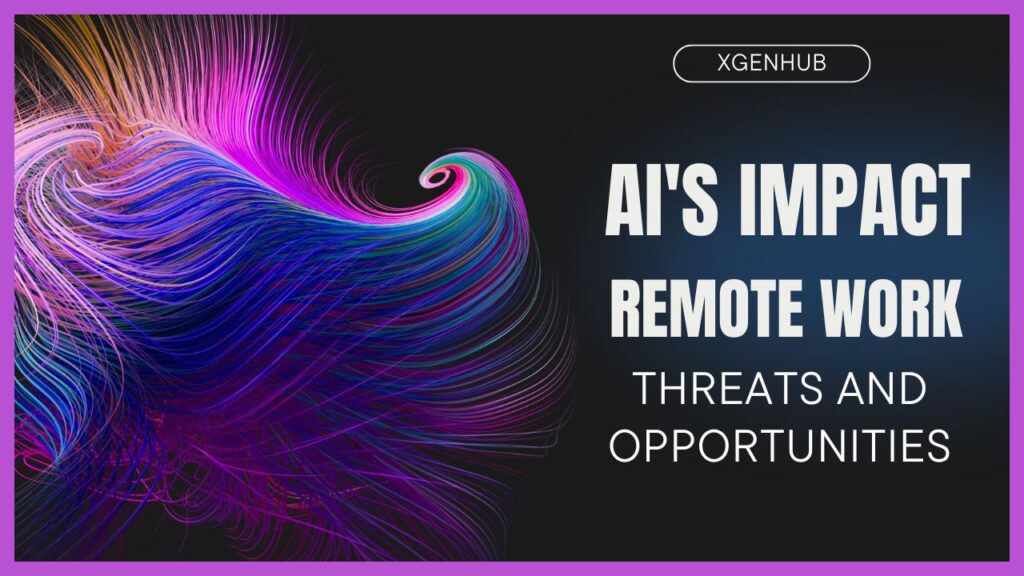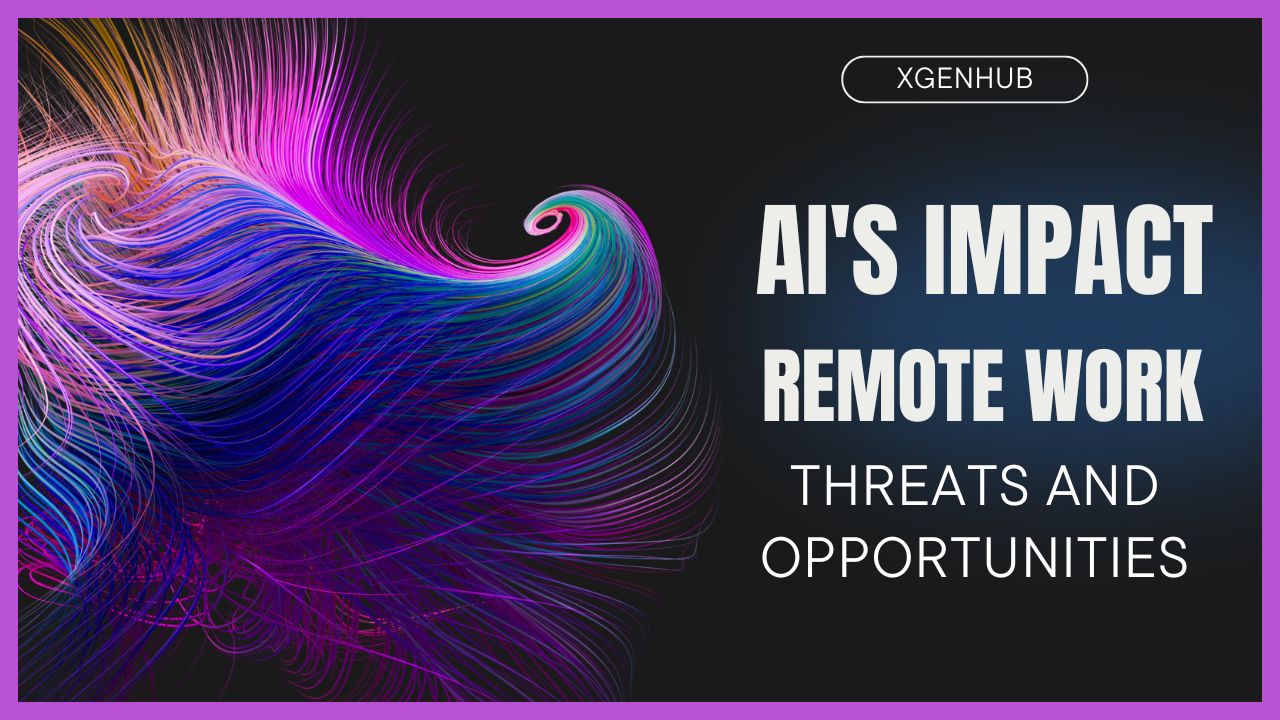Hey I’m Inzamul, Welcome to my article today I am going to breakdown AI’s Impact on Remote Work: Threats and Opportunities
The rise of remote work has fundamentally transformed the way we work. Gone are the days of mandatory commutes and rigid office schedules. Today, technology empowers employees to be productive and engaged from anywhere in the world. Artificial intelligence (AI) is poised to further revolutionize remote work, presenting a unique blend of opportunities and challenges.
Want to fire your boss? Take control of your Online income & get Started Today.

Opportunities: Boosting Efficiency and Innovation
AI offers a plethora of advantages for remote teams:
Want to fire your boss? Take control of your Online income & get Started Today.
- Enhanced Productivity: Repetitive tasks that consume valuable time can be automated through AI-powered tools. Chatbots can handle routine inquiries, while virtual assistants can schedule meetings and manage calendars. This frees up remote workers to focus on high-value activities requiring creativity and critical thinking.
- Improved Collaboration: AI can bridge geographical divides and foster seamless collaboration. Real-time translation tools eliminate language barriers, while AI-powered meeting platforms facilitate brainstorming sessions and project discussions, ensuring everyone is on the same page regardless of location.
- Data-Driven Decision Making: AI excels at analyzing vast amounts of data, uncovering valuable insights that would be difficult for humans to identify. Remote teams can leverage AI to make informed decisions, optimize workflows, and gain a competitive edge.
- Personalized Learning and Development: AI-powered learning platforms can personalize training programs for remote workers, catering to their individual needs and learning styles. This ensures continuous skill development and keeps remote teams at the forefront of their industries.
- Cybersecurity for a Distributed Workforce: AI can be a powerful weapon in the fight against cyber threats, which are particularly concerning in remote work environments. AI algorithms can analyze network activity, detect anomalies, and predict potential security breaches, safeguarding sensitive data and ensuring a secure work environment.
Threats: The Looming Shadow of Automation
While AI offers undeniable benefits, it’s crucial to acknowledge the potential downsides:
Want to fire your boss? Take control of your Online income & get Started Today.
- Job displacement: A major concern surrounding AI is automation. Repetitive tasks currently performed by remote workers might be taken over by AI-powered tools, leading to job losses. However, AI is also likely to create new opportunities in areas like data analysis, AI development, and human-machine collaboration.
- The Human Touch Factor: Overreliance on AI can lead to a decline in interpersonal communication and collaboration skills, which are essential for building strong relationships and fostering a positive work culture.
- Bias and Algorithmic Fairness: AI algorithms are only as good as the data they are trained on. If biased data is used, the AI can perpetuate existing inequalities in the workplace. Ensuring fairness and transparency in AI development is crucial.
- The Black Box Problem: The complex inner workings of some AI systems can be opaque, making it difficult to understand how they arrive at decisions. This lack of transparency can lead to mistrust and resistance to AI adoption.
The Road Ahead: A Human-Centered Approach
To maximize the benefits of AI in remote work, organizations should prioritize these aspects:
- Upskilling and Reskilling Workforce: Equipping employees with the skills necessary to thrive in an AI-powered workplace is critical. Training programs should focus on skills like critical thinking, creativity, problem-solving, and complex communication.
- Focus on Human-AI Collaboration: The ideal scenario is not AI replacing humans, but rather humans and AI working together. AI should be seen as a tool to augment human capabilities and improve overall productivity.
- Ethical Development and Use of AI: Transparency and fairness should be at the forefront of AI development and implementation. Organizations need to be mindful of potential biases in data sets and algorithms, and ensure that AI is used ethically and responsibly.
Want to fire your boss? Take control of your Online income & get Started Today.
In conclusion, AI’s impact on remote work is a double-edged sword. While it presents significant opportunities to boost efficiency, collaboration, and innovation, it also raises concerns about job displacement and potential biases. By adopting a human-centered approach that prioritizes upskilling, collaboration, and ethical development, organizations can leverage AI to create a thriving and successful remote work environment. As AI continues to evolve, navigating this new landscape will require ongoing adaptation, but the potential rewards for both businesses and remote workers are significant.
Thanks for read my article, AI’s Impact on Remote Work: Threats and Opportunities
